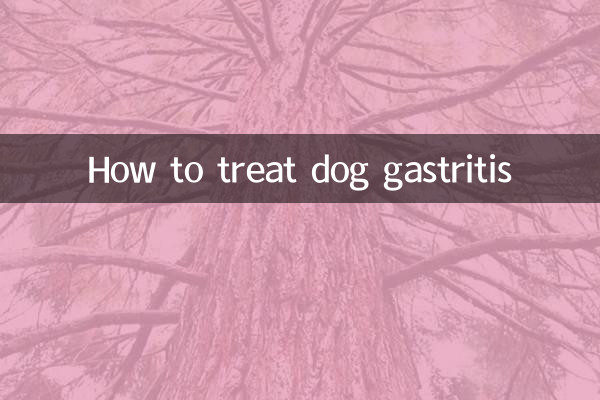Treatment methods for dog gastritis
Recently, pet health issues have become one of the hot topics, especially the treatment of dog gastritis. This article will detail the causes, symptoms, diagnosis, and treatment of dog gastritis, and provide structured data so readers can quickly access key information.
1. Causes of gastritis in dogs

Dog gastritis refers to inflammation of the gastric mucosa in dogs. Common causes include:
| Cause type | specific reasons |
|---|---|
| Improper diet | Eating spoiled food, overeating, and suddenly changing dog food |
| infection | Bacteria (e.g. salmonella), viruses (e.g. parvovirus), parasites |
| drugs or toxins | Ingestion of medicines, chemicals or poisonous plants |
| Other diseases | Gastritis caused by kidney disease, liver disease, or pancreatitis |
2. Symptoms of gastritis in dogs
Common symptoms of gastritis in dogs include:
| Symptoms | Detailed performance |
|---|---|
| vomiting | Frequent vomiting, which may be tinged with bile or blood |
| decreased appetite | Refusing to eat or eating significantly less |
| Diarrhea | Loose stools that may contain blood or mucus |
| abdominal pain | The belly is sensitive and the dog may curl up or be reluctant to be touched |
| dehydration | Dry gums and poor skin elasticity |
3. Diagnosis of dog gastritis
Veterinarians typically diagnose gastritis in dogs by:
| diagnostic methods | Specific content |
|---|---|
| clinical examination | Observe symptoms and palpate abdomen |
| blood test | Detect inflammation indicators, liver and kidney function, etc. |
| Imaging examination | X-ray or ultrasound to check the condition of the stomach |
| stool test | Check for parasite or bacterial infection |
4. Treatment methods for dog gastritis
The treatment of dog gastritis needs to be formulated according to the cause and severity. Common treatments include:
| Treatment | Specific measures |
|---|---|
| fasting food and water | Mildly ill dogs need to fast for 12-24 hours and gradually resume their diet. |
| drug treatment | Antiemetics, antibiotics (e.g. for bacterial infections), gastric mucosal protectants |
| Infusion therapy | Severe dehydration requires intravenous replenishment of fluids and electrolytes |
| diet modification | Feed low-fat, easily digestible food, such as chicken porridge or prescription food |
| Cause treatment | Special treatment for parasites, poisoning or other illnesses |
5. Measures to prevent gastritis in dogs
Prevention is better than cure, here are some effective ways to prevent gastritis in dogs:
| Precautions | specific suggestions |
|---|---|
| Diet management | Avoid feeding spoiled food and feed regularly and quantitatively |
| Regular deworming | Perform internal and external deworming as recommended by your veterinarian |
| environmental safety | Keep away medications, chemicals and poisonous plants from your home |
| Vaccination | Get vaccinated on time to prevent viral infections |
6. When do you need medical treatment?
If your dog exhibits any of the following symptoms, seek medical attention immediately:
| red flag | Specific performance |
|---|---|
| persistent vomiting | No relief for more than 24 hours or vomitus containing blood |
| severe dehydration | Dry gums, sunken eyeballs, weakness |
| High fever or low temperature | Abnormal body temperature (above 39.5°C or below 37.5°C) |
| extremely depressed | Unable to stand or unresponsive to stimuli |
Summary
Dog gastritis is a common digestive system disease, and timely treatment and care are key. Through reasonable dietary management, regular examinations and preventive measures, the risk of dogs suffering from gastritis can be effectively reduced. If symptoms are severe or persist, be sure to contact your veterinarian for professional treatment in time.

check the details

check the details